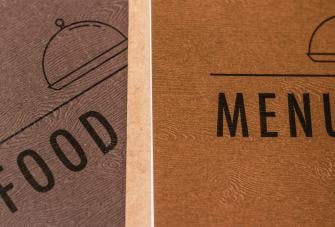What Are the Duties of an Average Bar Manager?
Bar managers are in charge of all the operations of the bar, from hiring and customer service to inventory and budgeting. The buck always stops with the bar manager. This is because the bar manager is in charge of making sure that their establishment runs as smoothly and profitably as possible.
It’s a tough job, but with the right attitude and drive, it can be very rewarding.
Here are the duties of an average bar manager.
Hiring and firing
A manager of any kind of establishment is in charge of the people that work there. As a result, a bar manager will coordinate hiring and firing activities. Turnover in the hospitality industry is also notoriously high, so bar managers always have to make sure that they have access to a pool of high-quality candidates.
In order to hire employees, managers need to become well versed in the ins and outs of recruitment. They may need to liaise with recruitment agencies to source talent for particular jobs, especially if those jobs require certain skills.
Scheduling
As a manager of a hospitality establishment, a bar manager will be in charge of scheduling the staff rota. This will involve knowing when periods of high and low demand will occur and preparing for them accordingly. Bar managers may also need to make changes on the fly, as requirements of the business may mean that they need to call in or cut staff from certain shifts.
Scheduling will also mean knowing the schedules and personal commitments that employees have outside of work. Many people who work in the hospitality industry have other commitments, whether they be educational, social, professional, familial, or healthcare-related. Some staff, for instance, may have classes they need to attend, and so the bar manager may need to schedule their shifts around this.
Enforcing quality and safety measures
Like any business, there are a certain amount of risks involved in working there. Bars can be treacherous places if the right quality and safety measures aren’t fulfilled.
There are many hazards associated with working at a bar. Lighting is often low, so visibility can be impaired. Many bars have adjoining kitchens, which can have potentially dangerous equipment. Fire hazards can occur from overcapacity. And, most importantly, bars serve a product that, when ingested, lowers inhibitions, there is always a risk of personal injury.
The bar manager will be in charge of ensuring that their bar is a safe and secure place to work and enforcing all local and national health and safety regulations.
Managing licenses
Bars need licenses in order to sell alcohol. Rules can differ depending on the jurisdiction you serve in, but the basic need for a licence is the same everywhere.
The bar manager’s role includes ensuring that all licences necessary for the operation of the bar are kept certified and up to date. The bar manager will also be in charge of renewing a licence once it has lapsed.
Team management and motivation
As a manager, the bar manager will need to have great interpersonal skills. A bar manager will need to motivate and inspire their team every day to deliver the best possible service to their customers. This may involve giving staff particular tasks suited to their skills and motivating them with small incentives, like tips or time off.
Customer service
Most of a bar’s staff can deal with basic customer service requests. However, there may be some instances where a manager will be needed to make a judgment call on certain customer service requests.
If, for example, a customer demands a refund on an order above a certain amount, that might need verification from someone in a management position. A customer may also request something that requires a shift in the bar’s seating plan or access to the bar’s gambling machines or games, such as pool or darts.
The bar manager must ensure that they are delivering great customer service to their customers while maintaining great business practices.
Conflict resolution
When you work in a place that sells alcohol, you’re likely to encounter a few disagreements between customers. Alcohol can make certain people less inhibited and more likely to pick or fight or start an argument. A bar manager must be prepared to resolve particular conflicts while keeping staff safe from injury and harassment. Therefore, learning to deal with difficult customers is vital when being a bar manager.
Conflict won’t be limited to customers, either. Conflict is likely to arise in any workplace between employees. A bar manager must be able to mediate arguments between staff and come up with fair and equitable solutions.
Maintaining an atmosphere
Part of what makes a bar so attractive to customers is its atmosphere. Customers tend to frequent bars that have atmospheres that make them feel comfortable, excited, and happy. Different bars offer different atmospheres. Some are bright and cold with clean lines, some are dark and smoky. It’s important to nurture and maintain the type of atmosphere your bar has.
The bar manager will be responsible for maintaining the bar’s atmosphere. This can involve:
- Maintaining appropriate lighting levels
- Choosing and arranging the appropriate furniture and decorations
- Selecting appropriate music that fits the bar’s ambience
- Restricting access of certain customers
A bar’s atmosphere is part of its brand, so it’s vital that it be maintained.
Negotiating with suppliers
A bar needs a constant flow of shipments in order to keep stock at reasonable levels. Stock levels must remain consistent in order for the manager to plan for high and low demand periods accordingly.
A bar manager will have to negotiate with their suppliers in order to get the best possible deal for the bar. Many suppliers are open to offering discounts on their orders. A manager should know when an opportunity for savings presents itself and take advantage of them when possible.
Taking inventory
Stock levels in a bar must be checked constantly. Tracking the stock levels lets the manager know when new orders have to be put in for particular products.
A bar manager will need to ensure that inventory is taken on a regular basis. This will not only ensure that stock levels remain consistent, but that shrink doesn’t occur as a result of damage, clerical errors, or employee theft.
You can use your point of sale (POS) to manage your inventory levels and make sure that all your records are updated in real time.
Managing budgets
Without well-managed books, a bar can’t survive. Margins for most hospitality businesses are very thin, so every bit of income needs to be tracked and accounted for.
A bar manager will need a good eye for numbers and be able to spot inconsistencies, identify when and where savings can be made, and costs reduced.
Manage your whole bar from your POS
A bar manager has many duties, and their days can often be full of many different tasks. They are often being pulled in many directions, and often can’t give every task the attention it may need.
But what if you could manage every aspect of your bar from one place?
The Epos Now Bar POS system lets you do everything from one place, from placing orders and scheduling staff to tracking inventory and changing seating plans.
- View real-time business data from any internet-connected device, wherever you are
- Leverage mobile ordering software to provide convenient at-table service
- Track sales, stock, and margin data to get greater visibility
- Connect to over 100 smart business tools to boost efficiency and automate manual tasks
- Train new staff quickly with our easy-to-learn POS
- Create custom seating charts to match your bar’s floorplan
- Offer digital free drink chips with a customer loyalty scheme
Contact Epos Now today to learn more about our systems.




